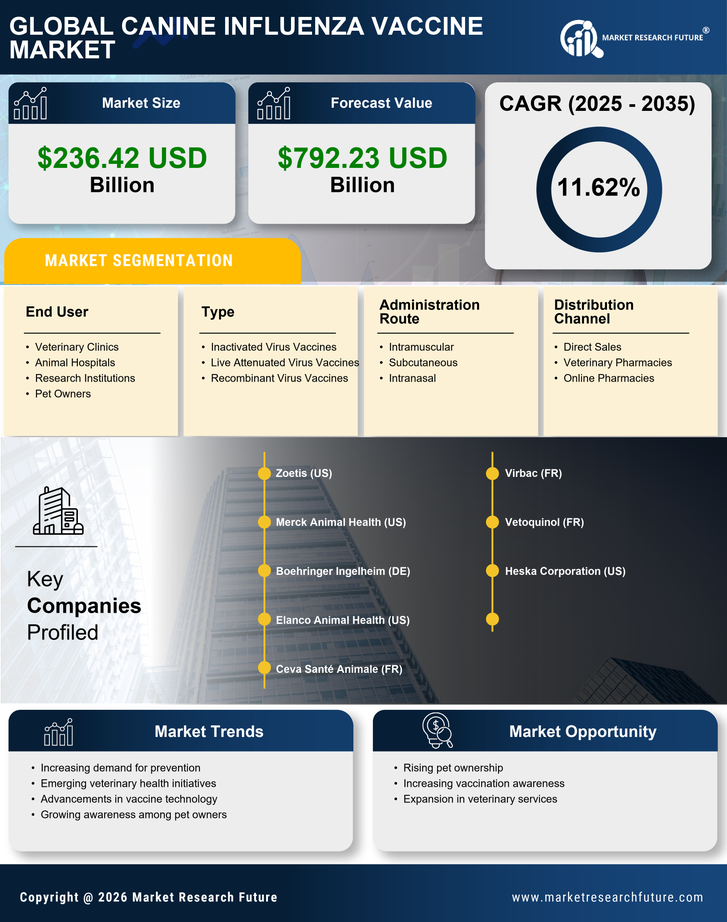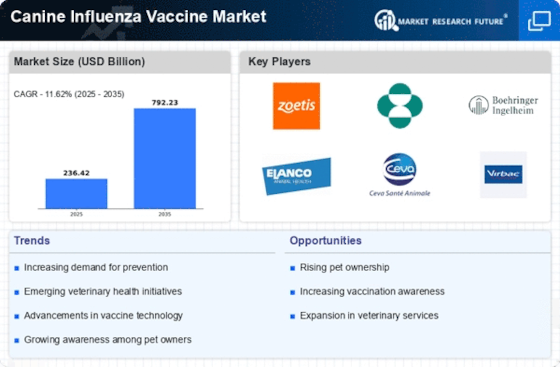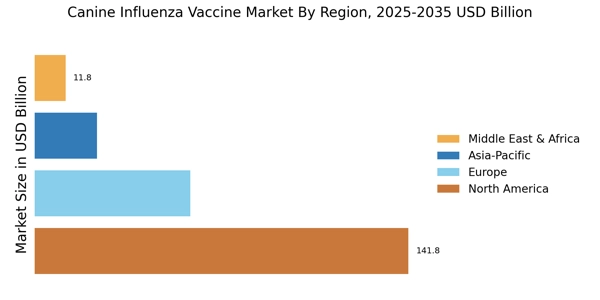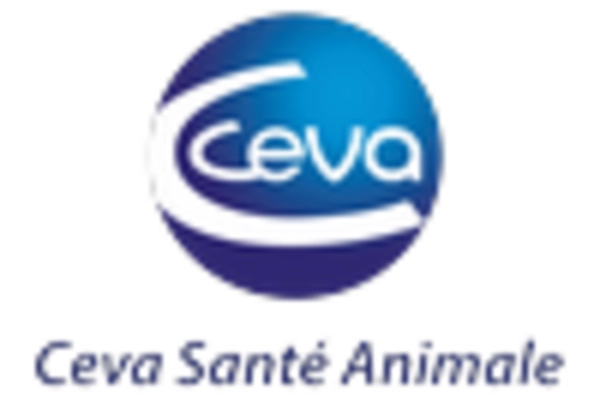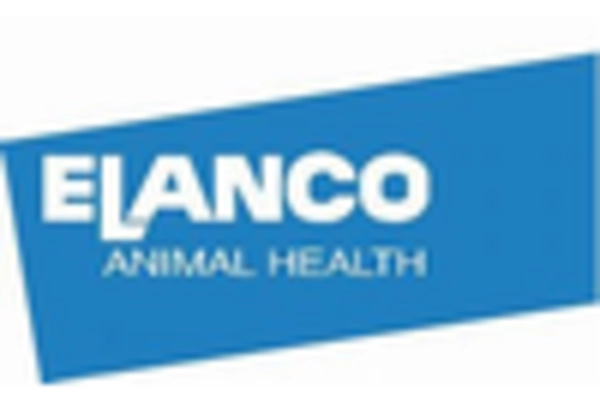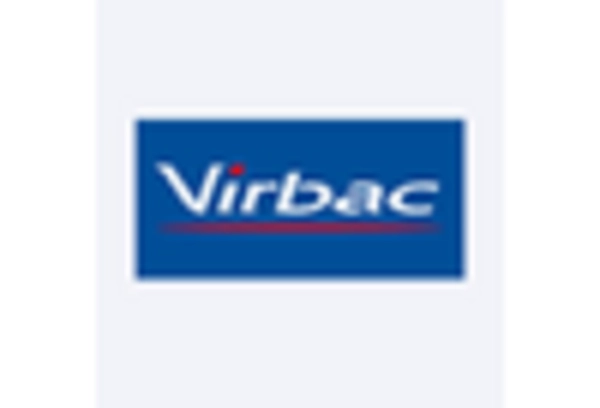Increased Pet Ownership
The rise in pet ownership has been a notable trend, contributing to the expansion of the Canine Influenza Vaccine Market. As more households welcome dogs into their lives, the demand for veterinary services, including vaccinations, has surged. According to recent statistics, approximately 67% of U.S. households own a pet, with dogs being the most popular choice. This increase in pet ownership correlates with a heightened awareness of canine health issues, including influenza. Consequently, pet owners are more inclined to seek preventive measures, such as vaccinations, to protect their pets from infectious diseases. The Canine Influenza Vaccine Market is likely to benefit from this trend, as veterinarians emphasize the importance of vaccination in maintaining pet health and preventing outbreaks.
Regulatory Support and Guidelines
Regulatory bodies play a crucial role in shaping the Canine Influenza Vaccine Market. The establishment of guidelines and recommendations for canine vaccinations by organizations such as the American Animal Hospital Association (AAHA) has fostered a more structured approach to pet healthcare. These guidelines often advocate for the vaccination of dogs against canine influenza, particularly in areas where outbreaks have been reported. The presence of regulatory support not only enhances the credibility of vaccines but also encourages veterinarians to recommend them more vigorously. As a result, the Canine Influenza Vaccine Market is likely to experience growth driven by increased compliance with vaccination protocols and a more informed pet owner base.
Rising Incidence of Canine Influenza
The increasing incidence of canine influenza outbreaks has heightened the urgency for vaccination, thereby propelling the Canine Influenza Vaccine Market. Reports indicate that canine influenza has been responsible for significant morbidity in dog populations, particularly in shelters and boarding facilities. The emergence of new strains of the virus has further complicated the landscape, necessitating updated vaccines to combat these threats. As awareness of these outbreaks spreads among pet owners, there is a growing recognition of the importance of vaccination as a preventive measure. This trend suggests that the Canine Influenza Vaccine Market may see a surge in demand as pet owners seek to protect their dogs from potential infection.
Veterinary Recommendations and Practices
Veterinarians play a pivotal role in the Canine Influenza Vaccine Market by influencing pet owners' decisions regarding vaccinations. As trusted sources of information, veterinarians are increasingly recommending the canine influenza vaccine as part of routine preventive care. This shift in veterinary practice is often driven by the recognition of the risks associated with canine influenza and the benefits of vaccination. Moreover, as veterinary practices adopt more comprehensive vaccination protocols, the visibility and accessibility of the canine influenza vaccine are likely to improve. Consequently, the Canine Influenza Vaccine Market may experience growth as more pet owners follow their veterinarians' advice and prioritize their pets' health.
Technological Advancements in Vaccine Development
Technological advancements in vaccine development are transforming the Canine Influenza Vaccine Market. Innovations in vaccine formulation and delivery methods have led to more effective and safer vaccines for dogs. For instance, the development of intranasal vaccines has simplified the vaccination process, making it less invasive and more appealing to pet owners. Additionally, ongoing research into the efficacy of new vaccine strains is likely to enhance the overall effectiveness of canine influenza vaccines. As these advancements become more widely adopted, the Canine Influenza Vaccine Market may witness increased uptake among pet owners who are more informed about the benefits of modern vaccination technologies.
